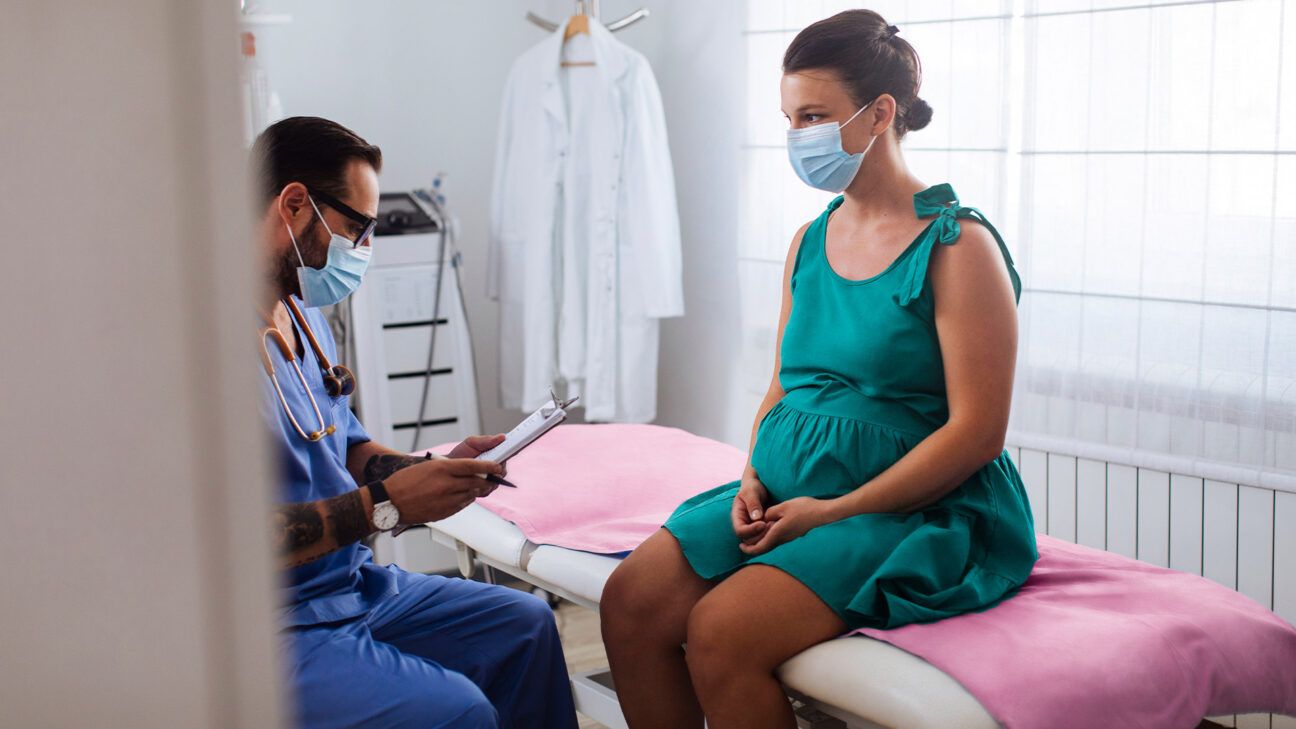
- The CDC is warning that some people have received the wrong RSV vaccine for their demographic group.
- The vaccine is approved for pregnant people and people over age 60.
- The CDC reported that 128 pregnant people were given the vaccine that is for adults over the age of 60.
- Additionally, 25 young children were given the vaccine that is approved only for adults.
Last year marked the first time that the medical community had access to vaccines to combat respiratory syncytial virus (RSV).
These vaccines were specifically targeted for two groups at higher risk for severe complications: the elderly and pregnant people.
Additionally, a monoclonal antibody treatment became available to protect young children from the virus.
However, the Centers for Disease Control and Prevention (CDC) recently announced that some of these vaccine recipients received the wrong vaccine for their particular group.
The number of errors is small. At least 128 pregnant people were given a version of a vaccine approved for adults 60 and up, and about 25 children under 2 years old were administered a vaccine only approved for adults.
“Most of these administration error reports described no adverse event,” the CDC statement reads. “When an adverse event was concurrently reported to VAERS, most reports were classified as nonserious.” A majority of the children affected were under 8 months old, and those incidents and those of the pregnant people who received the wrong vaccine were in outpatient settings or pharmacies.
What to know about RSV protection for children
Last fall, the CDC and the Advisory Committee on Immunization Practices authorized monoclonal antibody treatment to protect infants against RSV.
Nirsevimab known by the brand-name Beyforus is a monoclonal antibody treatment made by Sanofi and AstraZeneca for babies and children up to 2 years old.
RSV vaccines only available for adults
RSV vaccines like Pfizer Abrysvo or GSK Arexvy are not approved for infants or young children. Abrysvo is the only RSV vaccine recommended for pregnant people, but Arexvy is not approved for use during pregnancy; both are approved for adults over the age of 60.
Dr. Daniel Ganjian, FAAP, a pediatrician at Providence Saint John’s Health Center in Santa Monica, CA, told Healthline that errors administering new vaccines can occur, given the scale of distribution. “New vaccines and treatments can sometimes lead to confusion, especially in busy healthcare settings,” Ganjian said. “The RSV vaccine for adults and the monoclonal antibody treatment for children have similar names, which can contribute to mix-ups.”
What to do if you received the wrong RSV vaccine
The most important thing is to stay calm, Ganjian says.
“It’s important to remember that no serious adverse events have been reported from this specific error,” Ganjian said. “However, any unusual symptoms after vaccination should be reported to your doctor. These can include fever, redness or swelling at the injection site, or allergic reactions like hives or difficulty breathing.”
The CDC statement recommended that healthcare providers report any errors to the Vaccine Adverse Event Reporting System (VAERS), a passive surveillance system for vaccine safety maintained by the CDC and the FDA. VAERS reports don’t always have information that is complete, accurate, or verifiable, and they are updated frequently.
“While VAERS is not designed to determine fault, it helps public health officials identify and address potential issues with vaccines,” Ganjian said.
Dr. Patricia Faraz, board-certified OB/GYN at The Women’s Hospital at MemorialCare Saddleback Medical Center in Laguna Hills, CA, told Healthline that stricter protocols must be adopted by healthcare officials in handling new vaccines like this.
“There needs to be a system in place where the order and vaccine are verified by two staff members in the office,” Faraz said. “Medications for OB patients should not be stored in the same refrigerator as non-OB patients to reduce errors as staff members may not be familiar with these new vaccines and they are named similarly.”
You should still get the RSV vaccine if you’re eligible
Faraz said she does recommend the vaccine during pregnancy to create antibodies that will be passed to an infant since newborns and infants are so vulnerable to RSV.
“The reason to give RSV vaccines to pregnant women is so that the antibodies produced after receiving the vaccine cross the placenta and offer protection to the newborn and infancy period (6 months),” Faraz said. “I do recommend RSV vaccine to pregnant women between 32-36 weeks pregnancy in hopes of reducing disease in newborns and infants. Up to 80,000 infants can be infected with RSV yearly requiring hospitalization. 100-300 children will die each year from RSV.”
But Faraz added that with the Arexvy brand vaccine, it is unclear if there are potential issues for pregnant people because it was not approved for that group.
“Unfortunately, these vaccines are brand new, and adverse events in pregnant women are not known with Arexvy,” Faraz said. “Over time adverse events may be reported and then we will have a better idea regarding potential side effects or efficacy rates of the Arexvy which is indicated for individuals over 60.”
The best thing people seeking the vaccines can do, Ganjian said, is to make sure they are informed by professionals: ask questions if you don’t understand something.
“Remember, it’s always best to get information from reliable sources, like the CDC or your healthcare provider. They can provide you with the most accurate and up-to-date information about RSV vaccines and treatments,” Ganjian said. “Another good strategy is when you go in to get your vaccine, ask for the exact name of what you want.”
Takeaway
The CDC is reporting that errors in administering new RSV vaccines have been documented in pregnant people and children under 2.
The number of errors relative to the number of vaccines administered is small, and few adverse effects have been reported.
If you’re planning to get an RSV vaccine, make sure you know exactly what you need. Familiarize yourself with the different vaccines and ask your doctor if you’re unsure.
